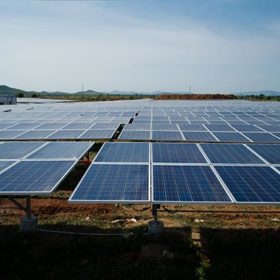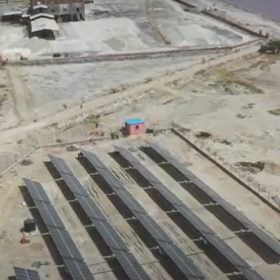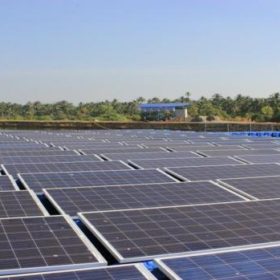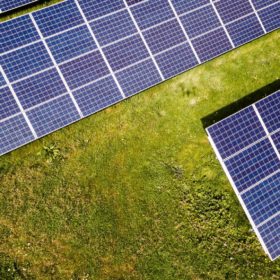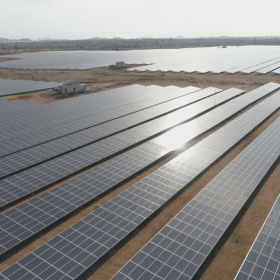Gujarat tops in approved capacity under government’s solar park scheme
The State accounts for 38% (14,375 MW) of the overall PV capacity (37,771 MW) sanctioned under the government’s scheme for “Development of Solar Parks and Ultra-Mega Solar Power Projects.”
Tata Power awarded India’s largest solar and battery storage project
Tata Power Solar has secured the engineering, procurement, and construction contract for a 100 MW solar field with a 120 MWh battery. The project, awarded by the Solar Energy Corporation of India, will be in Chhattisgarh.
IREDA, BVFCL sign MoU on renewable energy and green hydrogen
The Indian Renewable Energy Development Agency Ltd (IREDA) shall provide its techno-financial expertise to help Brahmaputra Valley Fertilizer Corporation Limited develop renewable energy, green hydrogen, green ammonia, and energy efficiency and conservation projects.
Hindustan Salts Limited tenders 5 GW of solar in Rajasthan and Gujarat
The State-owned salt producer has invited developers to build and operate an aggregate 5 GW of solar capacity on its disused land in the Indian States of Rajasthan (4 GW) and Gujarat (1 GW). The developer shall pay to Hindustan Salts a fixed annual rental for the land provided on a per acre basis. Developers have until December 13 to lodge their interest.
India added 2 GW of utility-scale solar in Q3 CY2021
JMK Research analysts expect the solar installation activity to further pick up in the fourth quarter. They estimate around 3.5 GW of new utility-scale solar capacity and 1 GW of hybrid capacity addition in the October-November-December period.
NTPC arm signs PPA for 325 MW solar project in Madhya Pradesh
NTPC Renewable Energy Limited has signed a power purchase agreement with Indian Railways, Madhya Pradesh Power Management Company Limited (MPPMCL), and Rewa Ultra Mega Solar Limited (RUMSL).
NTPC tenders 1.2 GW solar EPC work in Karnataka
Solar installers must bid for a minimum of 50 MW and a maximum of up to 600 MW, in 10 MW multiples. Bidding closes on December 24.
JSW Energy to re-organize renewable and thermal businesses
The private-sector power producer will group its renewable energy business under wholly-owned arm JSW Neo Energy as it targets growth in renewable energy generation, energy storage, and green hydrogen business.
Automation in solar O&M delivering plant ROI
Data analytics and digital process support in solar plant operation and maintenance delivers unmatched improvement in efficiency, while modern technology drives down development costs. It also helps service providers in ensuring sustained energy generation, long-term performance, and plant’s return on investment.
RWE sells Belectric to Czech utility CEZ
The German Federal Cartel Office is currently reviewing the transaction. RWE confirmed the plan.

